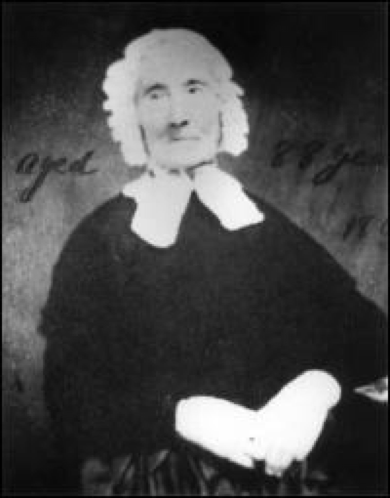Ingraham’s reminiscence was first published by the Women’s Canadian Historical Society in 1912. The manuscript is at the University of New Brunswick. It was an important source for Earle Thomas’s Greener Pastures: The Loyalist Experience of Benjamin Ingraham, published in 1983, about Hannah’s father.
Here’s how Hannah recalled the war, which started when she was still a toddler (in the published version).
1776 to 1783. My father lived at New Concord, twenty miles from Albany. We had a comfortable farm, plenty of cows and sheep. But when the war began and he joined the regulars they (the Rebels) took it all away, sold the things, ploughs and all, and my mother was forced to pay rent for her own farm. What father had sown they took away, but what mother raised after she paid rent they let her keep. They took away all our cows and sheep, only let her have one heifer and four sheep.Benjamin Ingraham joined the King’s American Regiment, seeing action from Rhode Island to Georgia. He returned as a sergeant from the losing army and immediately made plans to leave.
Uncle had given me a sheep, and when he found we were like to lose all he took it away and kept it for me.
Little John, my brother, had a pet lamb and he went to the Committee [of Safety] men and spoke up and said, “Won’t you let me have my lamb?” He was a little fellow, four years old, so they let him have it.
1783. He came home on Sept. 13th, it was Friday, and said we were to go to Nova Scotia (New Brunswick was then part of Nova Scotia), that a ship was ready to take us there, so we made all haste to get ready.In the coming months I’ll share more about how the Ingraham family settled into their new life on the Canadian frontier.
Killed the cow, sold the beef, and a neighbour took home the tallow and made us a good parcel of candles and put plenty of beeswax in to make them hard and good.
Uncle came down and thrashed our wheat, 20 bushels, and grandmother came and made bags for the wheat, and we packed up a tub of butter, tub of pickles, and a good store of potatoes.
And then one Tuesday, suddenly, the house was surrounded by the rebels and father took prisoner and carried away. Uncle went forward and promised them who took him that if he might come home then he would answer for his being forthcoming next morning. But No, and I cried, and I cried, and I cried enough to kill myself that night. When morning came they sent to say that he was free to go.
We had five wagon loads carried down the Hudson in a sloop, and then we went aboard the transport that was to bring us to St. John.

Although we live in Maine my wife and I used to serve as volunteer first person interpreters at Kings Landing Living History Museum in New Brunswick. For several years we portrayed the brother and sister roles of Hannah and Ira Ingraham in the Ingraham house, set I think, in the 1840s. My wife played a memorable Hannah Ingraham.
ReplyDelete